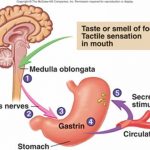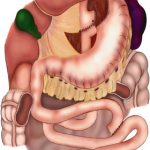News

In the March 23, 2011 issue of The Journal of Neuroscience, Oregon Research Institute (ORI) senior scientist Eric Stice, Ph.D. and colleagues, including Dana Small, Ph.D. from the J.B. Pierce Laboratory in New Haven Connecticut, provide possible answers to the chicken or egg dilemma of overeating. Do youths overeat just to eat or is their …
Read More

The National Eating Disorders Association (NEDA) is hosting its annual conference in Los Angeles at the end of this week (October 13 to 15). The conference slogan is “Reaching for the Stars! Advancing the Prevention and Treatment of Eating Disorders”. The conference connects families coping with the effects of eating disorders and people in recovery …
Read More

A recent study involving a large group of people who underwent a gastric bypass found the risk for self-harm emergencies rose after surgery. The results of the study were published in the online edition of JAMA Surgery. The Study Morbid obesity is an epidemic in rich countries; approximately 6% of people in America are classified …
Read More

A UK Mom who battled anorexia for more than 10 years has decided to set up a support group in order to reach out to sufferers of anorexia and their families in her local community of Bolton, Lancashire. Elaine Gidman, who is now 36 and has 2 children, remembers the severity of her eating disorder, …
Read More

It’s the time of year when old patterns can flare up when it comes to food and fitness – tasty temptations are everywhere, cold weather makes it hard to get outside and the stress of the holidays can sometimes lead to poor decisions. Exercise can be an effective way to relieve tension and offset holiday …
Read More

People with medically serious weight issues may have a hard time finding a reliable method to shed pounds, according to a new study from Johns Hopkins Medicine. For the study, researchers evaluated 200 weight-loss programs in specific areas of Maryland, Washington D.C. and Virginia. The main problem, they found, is that most programs don’t adhere …
Read More

Anti-fat attitudes are shaped as young as 32 months old, new research suggests. The study found that toddlers pick up on the attitudes of their mothers, revealing that obesity prejudice, body image beliefs and discrimination are shaped early in life. The researchers showed 70 infants and toddlers pairs of photos of people – one person …
Read More

If you store more of your fat around your trunk and abdominal region, you may be at risk for the development of eating disorders, according to new research. Having an apple-shaped body was linked to a sense of loss of control around food, the Drexel University team found, and women with this shape also reported …
Read More

People who are underweight in middle age are about 30 percent more likely to develop dementia than people who are a healthy weight, according to recent research. The tipping point is having a body mass index (BMI) less than 20 kg/m2, the study found, which was the largest ever to analyze the link between dementia …
Read More

While periodic binge eating may not cause adverse health effects, new research suggests that chronic binge eaters may be more likely to suffer from hypertension or high blood pressure. A team from Howard University College of Medicine tested the differences between female rats who either ate high-fat and high-sugar chow or regular chow for several …
Read More
 Eating Disorder Self Test. Take the EAT-26 self test to see if you might have eating disorder symptoms that might require professional evaluation. All answers are confidential.
Eating Disorder Self Test. Take the EAT-26 self test to see if you might have eating disorder symptoms that might require professional evaluation. All answers are confidential.
Find a Treatment Facility Near You
Click on a state below to find eating disorder treatment options that could be right for you.










 Eating Disorder Self Test. Take the EAT-26 self test to see if you might have eating disorder symptoms that might require professional evaluation. All answers are confidential.
Eating Disorder Self Test. Take the EAT-26 self test to see if you might have eating disorder symptoms that might require professional evaluation. All answers are confidential.